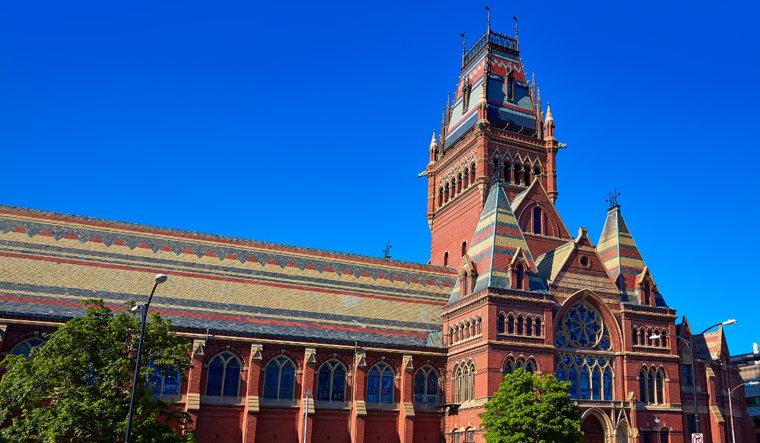The Secret to Finding Clarity During Tough Times
I remember thinking my mother was kidding around. She was holding a jar of sauce at arm’s length, trying to read the small print on it. Though she was only in her 40s at the time, she looked like an aristocratic old lady in a period drama. Full of a 14-year-old’s incredulous bluster, I demanded to know what she was doing.
“I can read it more clearly like this,” she told me.
“How can it possibly be clearer from further away?” I asked, probably with an eye roll.
Mom smiled as she turned back to the food. “Sometimes life’s like that,” she told me.
I’ve returned to that moment many times in the years that have followed. Because, well, sometimes life really is like that.
The bad news is that we’re all becoming farsighted. According to my ophthalmologist, the lenses of our eyes become less flexible as we age, and gradually we all find ourselves needing to hold things further away in order to see them clearly.
The good news? Farsightedness may actually be a gift life gives us—a clue for getting through hard times.
I Used to Rise Above Tough Times By Literally Rising Above My Problems
None of us escape painful life experiences—heartbreak, self-judgment, misfortune, conflict—and it can be easy to get lost in these painful states. They come to define us, and we become unable to separate ourselves from them.
When this would happen to me in my youth, I’d literally rise above my problems—by buying a plane ticket and traveling somewhere inexpensive until I’d worked through my savings. It wasn’t the worst way of coping; airplanes do offer us unique access to real perspective. I still love watching through the oval window as we leave the ground and begin climbing through the air. The landscape quickly begins to take shape as more than a jumble of large objects around me. I suddenly see how the city is actually a city, I see what a mountain really is, I sense what a river means as it snakes through distant gully. Having risen above the noise and bustle of earth, I suddenly speak the language of geography.
Travel gives us insight on our lives in the same way. By distancing ourselves from the daily bustle, we can take in the dimensions of our lives. Am I living in a way that feels on purpose? Am I making the contribution I dreamed of making?
We all know someone who has returned from time away from their day-to-day life having made some momentous decision: they end their marriage, move houses, or throw away their career to pursue a dream. The perspective they were given by the distance meant they could finally see clearly.
But we can’t hop a plane every time we’re walloped by one of life’s two-by-fours. We have mortgages and responsibilities and bills and children. Sometimes we also have pandemics. (I’ve written about how to have adventures when you have to stay home.)
So, How Can we Create Distance to See Things More Clearly?
When I have big questions, I often turn to poetry. One of my greatest teachers is the German poet Rainer Maria Rilke, and he never disappoints. I asked Rilke: How can we rise above our problems enough to see them clearly?
“Quiet friend who has come so far,” he replied, in Sonnets to Orpheus. “Feel how your breathing makes more space around you.”
It’s cool when one of the world’s best poets and your YouTube yoga teacher have the same take on your problems.
And they’re both right.
Here’s the thing: We have an evolutionary bio-hacking superpower. Unlike most land creatures, human beings can control our breathing speed. This means that we can force our nervous systems from the sympathetic (“fight or flight” mode) to the parasympathetic (the “rest and digest” state) just by slowing our breath. It’s like doing a “force quit” on your computer for a program that’s not responding right.
In fight or flight, we can’t reason or use logic or creativity. The left-side amygdala doesn’t think. It simply looks for potential danger and reacts. And it sees danger everywhere. In “rest and relax” mode, we can sit down and observe the problem before us. We can notice its shape, its edges. It no longer fills the sky. Best of all, we can begin to get curious. “Why has this situation arisen?” “What is it teaching me?” “What would be a creative way to approach it?”
As my wife Martha Beck likes to say, “Never, when being chased by a hungry lion, did an antelope ever stop and take a long deep breath.” When we breathe slowly, we communicate to our brain that all is well. The brain switches over from being controlled by the left brain amygdala (which primarily pumps out fear) to being run by the right brain amygdala (which actually produces curiosity).
To create some space, slowly inhale. Pause. Slowly exhale. Pause. Do exactly the opposite of what an antelope does while being chased by a lion.
What I’ve Come to Realize is That Distance Leads to a Sense of Renewal
Rising above something isn’t about claiming some moral high ground. It’s just about accessing our farsighted vision. Because how can we respond creatively to something when we don’t know what it actually is?
We don’t rise above our problems in order to escape them; we move away from them in order to understand what we’re looking at. We come to understand the dimensions of the issue that we can’t absorb while we’re in its midst. And then, we can return.
Once we have created space, we can return to our fearful experiences and transform them. With our creative, curious minds in the driver’s seat, we can bring peace to those around us and make something wholly new.
Our eyes will continue to grow less flexible as the years pass. We will become more farsighted. Sometimes life’s like that.
But we can always create space.
Please note that we may receive affiliate commissions from the sales of linked products.



